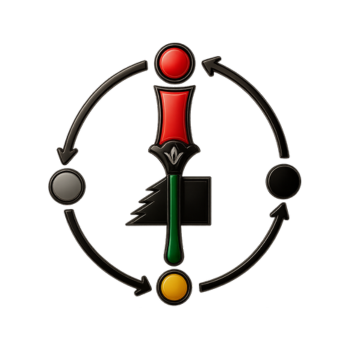-
Ankh, Udja, Seneb:
Wɔ ho te sɛn? Mewɔ asɛmmisa. In Twi, when we think about the idea of “nyansa,” does this convey a lot of wisdom? In other words, if I were to try to conceptualize this in mdw ntr, would this idea be represented with the plural strokes? How do Akan people think about and conceptualize “nyansa” in Twi? I would ask this same question for “nimdeɛ” or knowledge. Again, I ask both of these questions because I am trying to translate these terms into another African language ëtyö/Bubi but I can’t decide whether to leave it in its singular form or put it in its plural form. Anyway, I look forward to hearing more of your thoughts. Meda ase.
10 Comments-
 120,628
Abibisika (Black Gold) Points
120,628
Abibisika (Black Gold) Points
It’s generally dealt with like a mass (non-count) noun as it’s an intangible abstract.
-
Rx = nim = know (JA usage).
Jus kaa yuh know tings nuh mean seh y’av sense.
Based on what I read and Ɔbenfo commentary, nyansa “av sense”-
The patwa was very helpful
-
Y’mon it mek di Twi come more easy
-
Indeed
-
Indeed
-
I suspect you may see similar things in ëtyö
-
Aane. Still looking into it.
-
-
-
-
-
-
Yes thank you. I guess I’m struggling because in ëtyö there is a singular and plural for the wisdom – bökuppá and bëkuppá. Also I know in mdw ntr there are some words that have plural strokes but are actually singular nouns – it’s because with certain words the kmtyw thought of them on a more cosmic scale and having a lot. I’m not at home right now so I don’t have my notes to provide an example of what I’m talking about but I will.
-
Meda ase. Still learning. Getting there with Twi
-

